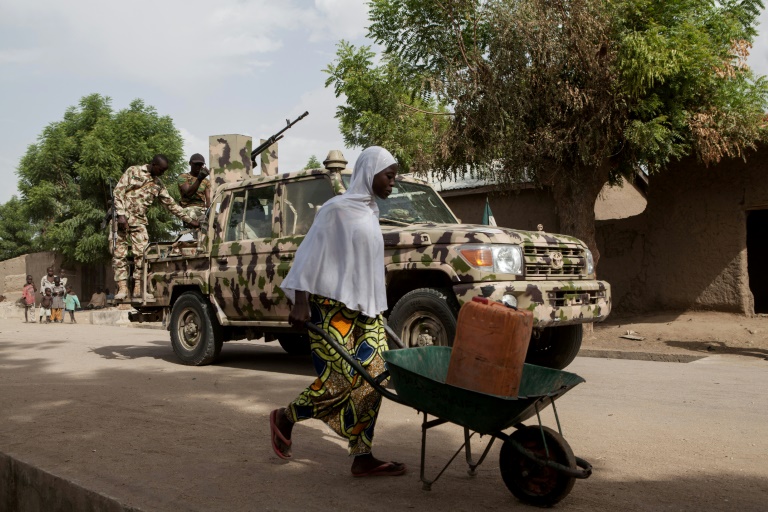Nigeria’s military burned down villages and forcibly displaced hundreds of people in its fight against Islamist insurgents in the country’s northeast, rights group Amnesty International alleged on Friday.
Nigeria’s military, which has frequently been accused of human rights abuses in its decade-long fight against Boko Haram and more recently Islamic State’s West African branch, did not respond to requests for comment.
Three residents interviewed by Reuters confirmed Amnesty’s findings.
Previous allegations have sparked investigations by the International Criminal Court in the Hague and hampered Nigeria’s ability to purchase arms, a source of frustration for its military’s leaders. However, convictions of soldiers have been rare and the military has repeatedly denied wrongdoing.
In the latest allegations, Amnesty said Nigerian soldiers razed three villages after forcing hundreds of men and women to leave their homes in the northeastern state of Borno in January.
The human rights group said it interviewed 12 victims and reviewed satellite images that showed several large fires in the area and almost every structure razed.
Residents described soldiers going house to house and rounding people up, then making them walk to a main road and board trucks, it said.
“We saw our houses go into flames,” a woman of around 70 told Amnesty. “We all started crying.”
The trucks took more than 400 people to a camp for people displaced by the conflict in Maiduguri, the main city in the region.
“These brazen acts of razing entire villages, deliberately destroying civilian homes and forcibly displacing their inhabitants with no imperative military grounds, should be investigated as possible war crimes,” said Osai Ojigho, director for Amnesty International Nigeria, in Friday’s statement detailing the group’s investigation.
Soldiers also detained six men, beating some of them, and held them for almost a month before releasing them without charge on Jan. 30, Amnesty said.
It cited Nigerian Army statements from the time that said six Boko Haram suspects had been captured and hundreds of captives freed from the militants.
“They say they saved us from Boko Haram, but it’s a lie,” said one man aged roughly 65, according to Amnesty. “Boko Haram isn’t coming to our village.”
Three residents from two of the affected villages, now living in Maiduguri, described to Reuters the same events as in the rights group’s report.
“The soldiers called us Boko Haram and set our houses ablaze, before evacuating all of us,” one of the residents said.
Amnesty’s report was published as the military struggles to contain the insurgencies, particularly Islamic State. Last July, troops began to withdraw to larger garrisons, dubbed “super camps”, from smaller bases that were frequently overrun with heavy loss of lives.
That has left the military on the defensive and the insurgents able to roam across large swathes of territory and carry out attacks, often on civilians, with few repercussions.
Source: Reuters



